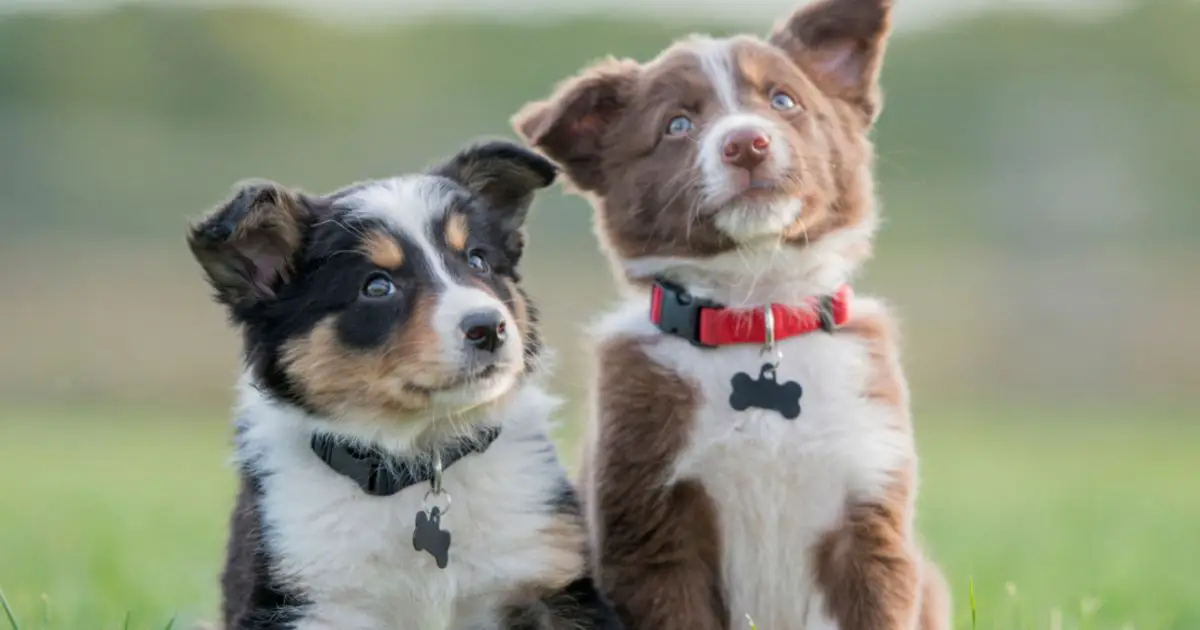Puppies are wonderful creatures that stay with us their whole lives – like our children. We can see the joy in our puppy’s eyes when we return from work and their joyful wagging.
Our dogs are very dependent on us, and they always want to be around us. Sometimes, dogs get violent or show destructive behaviors when left alone for a long period – a result of separation anxiety.
Keep reading, as this post will explain how to prevent separation anxiety in puppies and build a healthy relationship with them.
What Is Separation Anxiety in Dogs?
Separation anxiety is a display of emotional distress behaviors when a dog is away from its owner. Puppies are very similar to babies – they depend on the adult caring for them.
If you have kids, do you remember the time you took them to school for the first time? The reluctance and constant crying – this is separation anxiety. The same applies to dogs but with a different manner of expression.
Separation anxiety is curable, but even better, it’s preventable. If you start grooming your puppy to stay alone, it will get used to it by the time it’s fully grown. If you leave separation anxiety untreated, you might come back and meet your house in disarray.
Separation Anxiety and Canine Behavior
Some symptoms of separation anxiety are similar to how untrained dogs behave. Don’t just assume your dog is suffering from separation anxiety – first, observe the behavioral pattern.
If your dog acts up or spoils things in your presence, that’s most likely from poor training. But separation anxiety is triggered when your puppy feels you’re leaving. If your dog does anything in your presence, it might just need more training – but if it only happens after you’ve left, it’s likely separation anxiety.
How to Identify Separation Anxiety in Puppies

Separation anxiety starts from an early age, and you can cure it on time. Your puppy may show some funny signs when you’re about to leave or after you’ve left the house.
Note that puppies exhibit a few of these symptoms normally, which doesn’t mean they have separation anxiety. However, if you notice multiple symptoms almost daily, your puppy is likely suffering from this defect.
These symptoms include:
- Excessive barking when you’re leaving and after you’ve left the house.
- Urinating or defecating inside the house.
- Excessive pacing, whining, and other nervous responses when you’re leaving.
- Destroying things, especially chewing on windows and doors.
- Drooling excessively.
- Aggravated attempts to escape the house or confinement.
Unfortunately, some owners get rid of their puppies after noticing these signs. But you can easily treat your puppy with some easy steps.
How to Prevent Separation Anxiety in Puppies
You don’t need to abandon your puppy because of separation anxiety – it’s easy and fun to treat. We’ve prepared some practical steps to follow, and your puppy will be less dependent in no time. Let’s dive in:
Crate Conditioning
The source of separation anxiety stems from the need for your puppy to be around you all the time. Thus, the first step is preparing a safe space for your puppy that is not around you. The space can be a crate or a room, and the point is to give your puppy some alone space.
To create the perfect space, you need to pay attention to some things:
Stair Gates
Stair gates are less confining than solid doors and walls. They have spaces that allow your puppy to access you through sight, sound, and scent. These gates are perfect if you’re starting the treatment. This way, you can ease your puppy into the treatment and improve over time.
Familiar Items
After getting the space for your puppy, put some of its favorite items inside. The point of the space is to make the puppy feel safer in your absence. The best way to achieve this is by putting sensory stimuli that the puppy is familiar with.
You can put the puppy’s favorite toys, feeding bowl, and even some shirts you wear often. All these will make the puppy feel safe, and your scent will also reduce anxiety.
Familiar Sounds
Puppies are very sensitive to sound, and you can use this to your advantage. You can leave familiar sounds around the house to make it less lonely. If you’re always watching TV with your puppy, you can leave the TV on when you’re out. The sound stimuli will make it more comfortable, and that anxious feeling will fade away.
Crate conditioning aims to make your puppy comfortable with staying in its space alone. The everyday items and sounds that you’re leaving around are to create good memories that will make it happy inside its space.
You can also hide treats and things with your smell as a fun game for when the puppy is alone. All these build mental comfort when the puppy is inside the space. The aim is not to leave your puppy alone all day but to gradually ease it into staying alone.
Treat Conditioning
If there is something puppies love more than play, it’s food and treats. You can use this to cure separation anxiety. Separation anxiety is a mental and emotional response leading to physical outbursts.
You can use treats to correct this mental deficiency in your puppies. Let’s see how.
You should start small and leave your puppy for short periods. But before leaving, drop a special treat. If your puppy wants to follow you or show signs of leaving its crate, tell it to stay. And if it stays, give it a treat as a reward.
Repeat this process until it understands it gets a treat after obeying. When it’s used to short durations, extend the time you spend apart.
Desensitizing to Signs of Leaving
Another way to treat separation anxiety is by reducing the effects of your leaving on your puppy. Dogs are very smart and notice our behavioral patterns. Your dog can tell when you’re about to do something based on repeated actions before that event. What do we mean?
Your dog can tell when you’re about to leave the house because each time you do, you pick up your keys or carry your jacket. You can use this to desensitize your dog’s response to these signs.
For example, do something you usually do before leaving the house, like grabbing your coat or wearing your shoe. Instead of leaving the house, you can watch TV or just continue your normal activity. If you do this often, your puppy will no longer relate that activity to you leaving home.
Also, you can make your absence a good thing. Remember, we said puppies love treats – we can use that. Drop a treat for your puppy each time you’re about to leave. After some time, the puppy will relate your leaving to getting a treat and will be less anxious.
Exercise

Exercise is more of a preventive measure than a cure. The idea is that if you exercise your dog enough, it will be more inclined to rest than want to follow you out. One major cause of separation anxiety is boredom.
If you keep your dogs occupied with toys, puzzles, and good exercise from childhood, it is less likely to develop separation anxiety.
Medication
Behaviors that stem from separation anxiety can be frustrating to deal with, especially after a stressful day. For this reason, we recommend medications as a final resort. Medication use is not something to be taken lightly, especially with puppies. And if you feel the other methods are not working, you should call your vet for an examination.
Don’t look up drugs on the internet to give your puppy – instead, call your vet to get a prescription. These drugs are for depression and anxiety – some includeamitriptyline andalprazolam.
Takeaway Points
When carrying out the treatment, there are some things you should note:
- Don’t lash out at the puppy when it spoils things or defecates around the house. Because it can increase anxiety.
- Avoid sending your puppy to its safe space as punishment. You want it to feel safe and comfortable in that space. Using it as a punishment can develop negative emotions toward the space.
- Avoid unnecessary use of special treats, or they will lose effect. Special treats are strictly for training purposes.
Conclusion
Separation anxiety is an emotional stress response of dogs to their owner’s absence. It can lead to different attention-seeking behaviors like the destruction of property and other improper conduct.
We’ve shown you how to prevent separation anxiety in puppies, and you can also use this step as a cure. Dogs are similar to humans and can also feel complex emotions, and sometimes they just need a little patience andhelp. So, what treatment mode are you adopting when your dog experiences separation anxiety?
